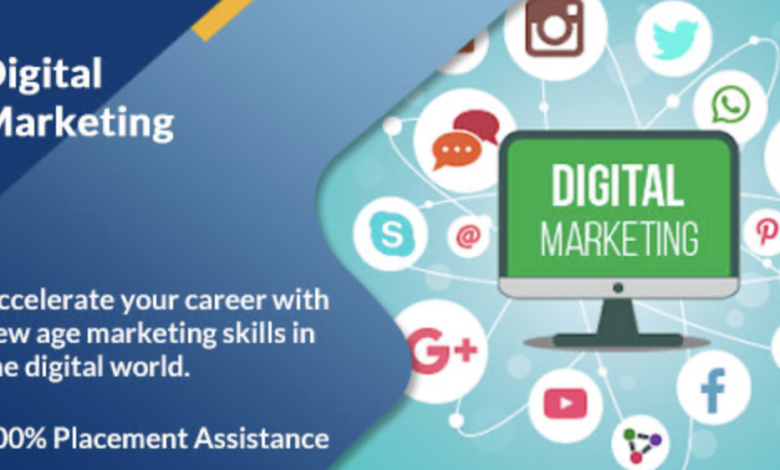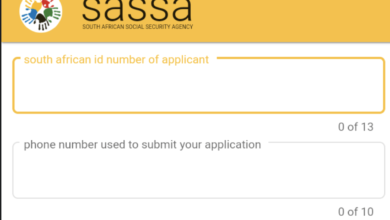Why should you consider taking a digital marketing course?
digital marketing course

In today’s digital age, having a strong online presence is essential for businesses of all sizes. Digital marketing has become a crucial component of any successful marketing strategy, and the demand for skilled professionals in this field continues to grow. Whether you’re a business owner looking to expand your online reach or a marketing professional aiming to advance your career, taking a digital marketing course can provide you with the knowledge and skills needed to thrive in this dynamic industry.
Digital marketing courses offer a comprehensive understanding of the various facets of online marketing, including search engine optimization (SEO), content marketing, social media advertising, email campaigns, and more. These courses not only teach you the theory behind these strategies but also provide you with practical techniques and hands-on experience to implement them effectively. By enrolling in a digital marketing course, you can stay updated with the latest industry trends, learn about consumer behavior, and gain expertise in using the tools and strategies necessary to create successful digital marketing campaigns.
Moreover, taking a digital marketing course can also enhance your career prospects. As businesses increasingly rely on digital channels to connect with their target audience, the demand for skilled digital marketers is on the rise. By equipping yourself with the knowledge and skills gained from a digital marketing course, you can position yourself as a valuable asset to potential employers or clients. Whether you’re looking to work for an agency, start your own business, or simply expand your career opportunities, investing in a digital marketing course can open doors to exciting possibilities in the digital realm.
So, if you’re looking to take your digital marketing skills to the next level, enrolling in a digital marketing course is a smart move. With the ever-evolving nature of the online landscape, staying ahead of the game is crucial. By investing in your education and acquiring the necessary skills, you can set yourself apart from the competition and ensure long-term success in the dynamic field of digital marketing.
Types of digital marketing courses available
When it comes to digital marketing courses, there is a wide range of options available to suit different needs and preferences. Whether you’re a beginner looking to gain a solid foundation in digital marketing or an experienced professional seeking specialized knowledge, you’re sure to find a course that aligns with your goals. Here are some of the most common types of digital marketing courses:
- General Digital Marketing Courses: These courses provide a comprehensive overview of digital marketing, covering topics such as SEO, content marketing, social media marketing, email marketing, and more. They are suitable for beginners or those looking to gain a broad understanding of digital marketing strategies.
- Specialized Courses: If you already have a basic understanding of digital marketing and want to deepen your knowledge in a specific area, specialized courses are the way to go. These courses focus on a particular aspect of digital marketing, such as SEO, paid advertising, social media marketing, or analytics. They are designed to help you become an expert in a specific field.
- Certification Courses: Many reputable organizations offer digital marketing certification courses that provide industry-recognized credentials. These courses often require passing an exam to earn the certification, which can enhance your credibility and boost your career prospects.
- Online Courses: With the rise of e-learning platforms, there is a plethora of online digital marketing courses available. These courses offer the flexibility to learn at your own pace and convenience, making them ideal for busy professionals or those unable to attend in-person classes.
- In-Person Workshops: In-person workshops and training sessions provide a more interactive learning experience. These courses often involve hands-on exercises, group discussions, and networking opportunities, allowing you to learn from industry experts and connect with like-minded professionals.
When choosing a digital marketing course, it’s important to consider your goals, budget, and preferred learning style. Research different course providers, read reviews, and compare curriculum and pricing to find the course that best fits your needs. Remember, investing in your education is an investment in your future success.
Top digital marketing course providers
With the growing demand for digital marketing courses, numerous institutions and online platforms offer courses to cater to aspiring digital marketers. Here are some of the top digital marketing course providers known for their quality content and industry expertise:
- Google Digital Garage: Google offers a wide range of free and paid digital marketing courses through their Digital Garage platform. From fundamentals of digital marketing to advanced topics like analytics and mobile marketing, Google Digital Garage provides comprehensive training suitable for beginners and experienced professionals alike.
- HubSpot Academy: HubSpot Academy offers a variety of free online courses covering different aspects of inbound marketing, content marketing, social media, and more. Their courses provide practical knowledge and certifications that are highly regarded in the industry.
- Udemy: Udemy is an online learning platform that hosts numerous digital marketing courses taught by industry experts. With a vast selection of courses covering various topics and skill levels, Udemy offers flexibility and affordability to learners.
- Coursera: Coursera partners with universities and organizations to provide online courses on a wide range of topics, including digital marketing. Their courses are taught by professors and industry professionals and often offer the option to earn a certificate upon completion.
- Digital Marketing Institute: The Digital Marketing Institute offers globally recognized certifications in digital marketing. Their courses cover a range of topics, from digital strategy and planning to social media marketing and search marketing.
These are just a few examples, and there are many other reputable course providers available. When choosing a course, consider factors such as the instructor’s credentials, course content, reviews from past learners, and whether the course offers certifications or recognized credentials. It’s also worth checking if the course provides ongoing support or access to a community of learners to enhance your learning experience.
Factors to consider when choosing a digital marketing course
Choosing the right digital marketing course is crucial to ensure you get the most out of your investment. With a plethora of options available, it can be overwhelming to make the right decision. Here are some key factors to consider when selecting a digital marketing course:
- Reputation and Credibility: Research the course provider’s reputation and credibility within the industry. Look for reviews and testimonials from past learners to get an idea of the course quality and effectiveness.
- Course Curriculum: Review the course curriculum to ensure it covers the topics and skills you want to learn. A good course should offer a comprehensive and up-to-date curriculum that aligns with industry standards and trends.
- Instructor Expertise: Check the instructor’s credentials and experience in the field of digital marketing. An instructor with industry experience and expertise can provide valuable insights and practical knowledge.
- Flexibility and Learning Style: Consider your preferred learning style and the course format that best suits your needs. Determine whether you prefer self-paced online learning, in-person workshops, or a mix of both.
- Price and Value: Compare the pricing of different courses and evaluate the value you will receive in return. Consider factors such as course materials, additional resources, support, and certifications offered.
- Student Support: Look for courses that offer ongoing support, such as access to instructors or a community of learners. This can enhance your learning experience and provide opportunities for networking and collaboration.
- Certifications and Recognitions: If certifications are important to you, check if the course offers recognized credentials that can boost your credibility and career prospects.
By considering these factors, you can narrow down your options and choose a digital marketing course that best aligns with your goals and preferences. Remember, investing time and effort in selecting the right course will set you on a path to success in the ever-evolving field of digital marketing.
What to expect from a digital marketing course
Digital marketing courses are designed to equip you with the knowledge and skills required to excel in the dynamic field of online marketing. While the specific content and structure of courses may vary, here are some common elements you can expect from a digital marketing course:
- Comprehensive Curriculum: A digital marketing course should cover a wide range of topics to provide you with a holistic understanding of the field. This may include modules on SEO, content marketing, social media marketing, email marketing, paid advertising, analytics, and more.
- Practical Learning: Courses often include practical exercises, case studies, and real-world examples to help you apply the concepts learned. This hands-on approach allows you to gain practical experience and develop critical thinking skills.
- Industry Insights: Digital marketing courses often provide insights into the latest industry trends, best practices, and emerging technologies. This helps you stay updated with the rapidly evolving digital landscape and adapt your strategies accordingly.
- Tools and Software: Many courses introduce you to various digital marketing tools and software that are commonly used in the industry. Learning how to leverage these tools can enhance your efficiency and effectiveness in executing marketing campaigns.
- Networking Opportunities: In-person courses and workshops provide opportunities to network and connect with industry professionals, peers, and potential mentors. This can be valuable for building relationships and expanding your professional network.
- Support and Feedback: Quality courses offer support from instructors and mentors who can provide guidance and answer your questions. They may also provide feedback on your assignments and projects, helping you improve your skills and knowledge.
- Certifications and Credentials: Some courses offer certifications or recognized credentials upon completion. These can enhance your credibility and demonstrate your expertise to potential employers or clients.
It’s important to approach a digital marketing course with a proactive mindset. Make the most of the course materials, participate actively in discussions, and take advantage of any additional resources or support offered. By fully engaging with the course content and applying what you learn, you can maximize the value and impact of the course on your digital marketing skills and career.
Key skills and knowledge gained from digital marketing courses
Digital marketing courses provide a wealth of knowledge and skills that are essential for success in the online marketing landscape. Here are some key skills and knowledge areas you can expect to gain from a digital marketing course:
- Search Engine Optimization (SEO): Learn how to optimize websites to improve their visibility in search engine results. Understand keyword research, on-page and off-page optimization techniques, and the importance of backlinks.
- Content Marketing: Discover how to create compelling and engaging content that attracts and engages the target audience. Learn about content strategy, storytelling, copywriting techniques, and how to leverage different content formats.
- Social Media Marketing: Gain insights into the various social media platforms and how to effectively use them for marketing purposes. Learn strategies for building a social media presence, engaging with followers, and running successful ad campaigns.
- Email Marketing: Understand the power of email marketing and learn how to create effective email campaigns. Discover techniques for building an email list, crafting engaging emails, and analyzing campaign performance.
- Paid Advertising: Learn how to leverage paid advertising platforms like Google Ads and Facebook Ads to reach your target audience. Understand campaign targeting, bidding strategies, ad formats, and performance tracking.
- Analytics and Data Analysis: Gain proficiency in using analytics tools to track and measure the performance of your marketing campaigns. Learn how to analyze data, identify trends, and make data-driven decisions to optimize your marketing strategies.
- Conversion Rate Optimization: Understand the principles of conversion rate optimization and learn how to improve website user experience, landing page design, and persuasive techniques to increase conversion rates.
- Digital Strategy and Planning: Develop the ability to create effective digital marketing strategies aligned with business goals. Learn how to develop buyer personas, conduct market research, and create a comprehensive digital marketing plan.
- Mobile Marketing: With the increasing use of mobile devices, learn how to optimize marketing campaigns for mobile platforms. Understand mobile-specific strategies, responsive design, and mobile app marketing.
- Project Management: Develop project management skills to effectively plan, execute, and track digital marketing campaigns. Learn how to set goals, allocate resources, manage timelines, and measure success.
These are just a few examples of the valuable skills and knowledge you can gain from a digital marketing course. The specific skills you acquire will depend on the course you choose and the areas you decide to focus on. By mastering these skills, you can become a well-rounded digital marketer capable of creating and executing successful marketing campaigns across various online channels.
How to make the most out of a digital marketing course
To maximize the value and impact of a digital marketing course, it’s important to approach it with a proactive mindset and make the most of the available resources. Here are some tips to help you get the most out of your digital marketing course:
- Set Clear Goals: Before starting the course, define your goals and what you hope to achieve. This will help you stay focused and motivated throughout the course.
- Be Engaged: Actively participate in the course by asking questions, taking part in discussions, and completing assignments. Engage with the course materials and make sure to apply what you learn in real-world scenarios.
- Network and Collaborate: Take advantage of networking opportunities provided by the course. Connect with fellow learners, join relevant communities or forums, and collaborate on projects. This can expand your professional network and provide opportunities for learning from others.
- Manage Your Time: Digital marketing courses can be intensive, so it’s important to manage your time effectively. Create a study schedule and stick to it, allocating dedicated time for learning, practicing, and reviewing course materials.
- Experiment and Practice: Don’t just rely on theoretical knowledge. Experiment with different strategies and techniques learned in the course. Practice implementing them in real-world scenarios to gain practical experience and reinforce your learning.
- Stay Updated: The digital marketing landscape is constantly evolving. Stay updated with the latest industry trends, news, and changes in algorithms. Follow industry blogs, subscribe to newsletters, and join relevant online communities to stay informed.
- Seek Support: If you have questions or need clarification, don’t hesitate to reach out to the instructor or course support team. They are there to help you, and getting your queries resolved can enhance your learning experience.
- Apply What You Learn: As you progress through the course, apply what you learn to real-life scenarios. Implement digital marketing strategies for your own projects, volunteer for non-profit organizations, or offer your services to small businesses. This practical experience will reinforce your learning and build your portfolio.
- Continuously Evaluate and Improve: Regularly assess your progress and identify areas for improvement. Use feedback from instructors, peers, and performance metrics to evaluate the effectiveness of your strategies and make necessary



